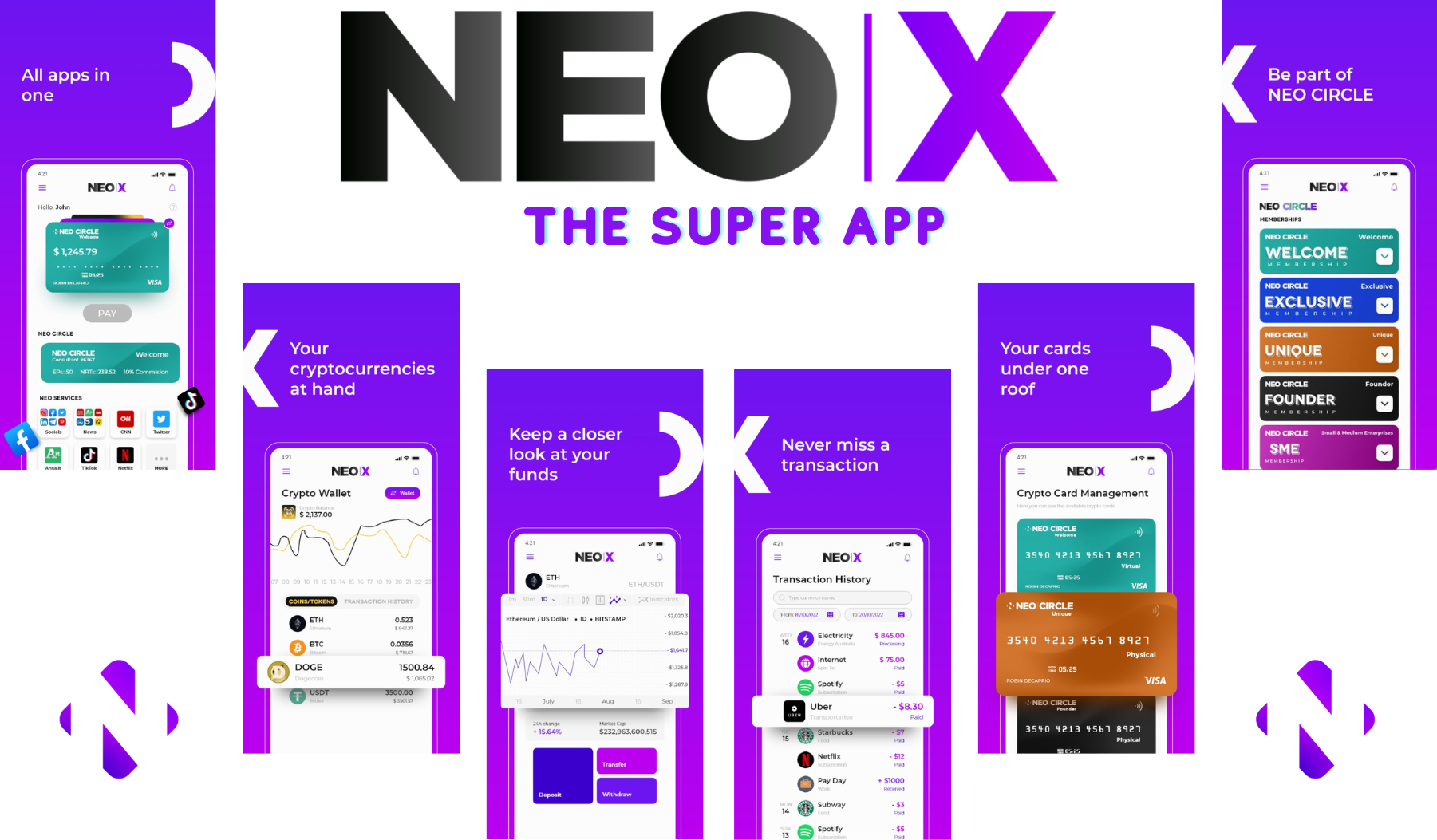[ad_1] As the European Central Bank (ECB) continues its building and testing of the potential digital euro prototype, it has revealed the five external companies that it will collaborate with and work alongside to develop potential user interfaces for the new currency.The European Central bank recently announced its intentions to work alongside five companies to …
European Central Bank Turns to Amazon, CaixaBank and Others to Test Digital Euro

[ad_1]
As the European Central Bank (ECB) continues its building and testing of the potential digital euro prototype, it has revealed the five external companies that it will collaborate with and work alongside to develop potential user interfaces for the new currency.

The European Central bank recently announced its intentions to work alongside five companies to develop and test the potential European Central Bank Digital Currency (CBDC), or, the ‘digital euro’.
CBDCs are government-backed digital currencies that can be used by both businesses and consumers. Simulated transactions will be processed using front-end prototypes developed by the firms and processed through the Eurosystem’s interface and back-end infrastructure.
From September until the end of 2022, online retail titan Amazon, Spanish financial institution CaixaBank, French payment service provider Worldline, payment-integration initiative European Payments Initiative (EPI) and the European paytech company Nexi will work alongside the ECB team.
These firms were chosen from a pool of 54 front-end providers who applied to become a part of the process. Their selection follows a call for interest by the ECB in April 2022 for joining the prototyping exercise. All 54 companies are said to fulfil a number of ‘essential capabilities’ that were outlined in the call and were best matched to the “specific capabilities” required for the various assigned use cases.
The prototyping exercise is an important element in the ongoing two-year investigation phase of the digital euro project. It is expected to be completed in the first quarter of 2023 when the ECB will also publish its findings.
So, what do we know about the digital euro so far?

In September 2020, Christine Lagarde, president of the ECB, said that the European Union had fallen behind in the digital payments race and that the creation of a digital euro could give it an edge. She later said that the work towards such a digital currency “… aims to ensure that in the digital age citizens and firms continue to have access to the safest form of money, central bank money.”
This follows a recent push in other regions worldwide such as in the United States, where research has recently been taking place into a US CBDC or digital dollar. Canada and China have also been known to trial CBDCs recently. While, Nigeria officially launched its own earlier this year.
In statements given by the ECB in the past, it has said: “A digital euro would not replace cash, but rather complement it. A digital euro would give people an additional choice about how to pay and make it easier to do so, contributing to accessibility and inclusion.” The ECB’s statements have explained that the digital euro can only become a success if it can be used by Europeans in their everyday life. These comments highlight the importance of the current phase of testing and development of the CBDC.
As it stands, there ultimately may be no such thing as a digital euro because the ECB is still in a phase of testing. The aim now is to focus on creating a working concept before a decision is made as to whether or not it should actually be issued. While these steps show progress, there is still potential for the final decision to be to not issue the EU CBDC.
What are the five companies working on?
Each of the five companies will not work directly together. Instead, they will develop user interfaces that specifically relate to the use case that best matches its area of expertise.
Amazon will work specifically on processes surrounding e-commerce payments. The inclusion of the online retailer may come as a surprise to some due to its American base.

CaixaBank, the only European bank to be selected at this stage of the process, will develop a mobile application in order to simulate the steps users would have to take to transfer digital euros to their bank accounts. The app would also help to similarly simulate how users would transfer digital euros to other individuals.
Worldline will explore offline payments between individuals. The company looks to rely on the expertise that it has in payment services. It plans to build a digital wallet that can support the physical storage of funds that can be transferred without any connectivity.
EPI and Nexi will work on point-of-sale (POS) retail payments based on whether payments are initiated by a business or its customer. Specifically, EPI is working on payments initiated by the customer, while Nexi will work on POS payments initiated by businesses. Nexi looks to provide support to the ECB for the digital euro as it is the largest European spender in technology and innovation in the digital payments sector and has around €300million of investments. It aims to improve the efficiency of the retail payments system.
Roberto Catanzaro, chief strategy & transformation officer of Nexi Group and member of the Digital Euro Market Advisory Group explained the reasoning. “We are proud to have been chosen to support the European Central Bank in such a strategic project for Europe. We look forward to bringing the best of Nexi’s recognised know-how in the digital payments space and more specifically in merchant solutions, to drive innovation in the European payment landscape”.
Is a future containing CBDCs likely?

Despite this progress being made and the involvement of these companies, it is still unclear as to whether or not any CBDCs, let alone the digital euro, are genuinely viable options. Patrick Campos, chief strategy officer at Securrency, a blockchain-based financial and regulatory technology provider, explains his take on the issues surrounding the adoption.
“It is still far from clear whether or not retail CBDCs will ever be a legitimate alternative to traditional payment methods or even private sector blockchain-based payments. As the ECB moves further into its exploration of a digital euro at the technical level, it seems that more questions than answers surface. In addition, it’s difficult to square the ECB’s vision for a digital euro with the ongoing realities on the ground.
“For instance, it’s difficult to see how a digital euro will be adopted and then scale when ECB officials are rightly worried about making the design look ‘too perfect’ to avoid mass take-up, and where cash is still king in the region, as multiple ECB reports highlight.
“In addition, there will be challenges with reconciling the political perception of the need for a digital euro with the overwhelmingly negative perceptions of CBDCs among the public, a dynamic to which thousands of public comments to the ECB digital proposal attest. All of this comes at a time when multiple countries are moving forward to upgrade existing retail payment systems and increasingly viewing wholesale CBDCs as a more viable option.
“I also note that one must question whether the underlying objectives and justifications behind a digital euro that is adopted by the public and will protect privacy can ever be achieved – or whether a retail CBDC is worth the expense when simpler private sector solutions can be quickly implemented that interoperate with traditional banking rails and may be more rapidly adopted.”
[ad_2]
Source link
In a constantly evolving world, where cryptocurrencies, decentralized finance and metaverse are creating new scenarios and opportunities, MY NEO GROUP is your guide in the digital transition.
Our Mission is to give you a pool of strategic assets to be the protagonist and earn together with US in the New Economy.
For more info:
Company – https://www.myneogroup.com
Community – https://www.myneocircle.com
Token NRT – https://www.myneocredit.com
Banca – https://www.bancaneo.org
Super web-app: https://myneodash.com
Mickael Mosse, CEO & Founder of My NEO Group, Forbes interview: https://forbesbaltics.com/en/search/mickael-mosse









